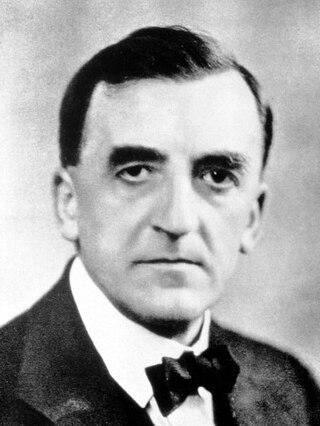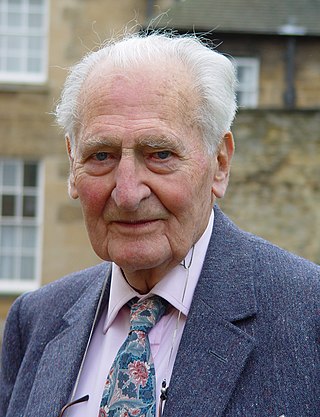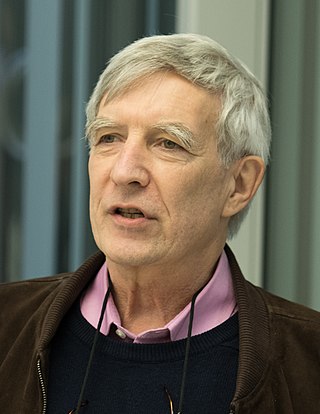Related Research Articles
The China–Cornell–Oxford Project, short for the "China-Oxford-Cornell Study on Dietary, Lifestyle and Disease Mortality Characteristics in 65 Rural Chinese Counties," was a large observational study conducted throughout the 1980s in rural China, a partnership between Cornell University, the University of Oxford, and the government of China. The study compared the health consequences of diets rich in animal-based foods to diets rich in plant-based foods among people who were genetically similar. In May 1990, The New York Times termed the study "the Grand Prix of epidemiology".

The Medical Research Council (MRC) is responsible for co-coordinating and funding medical research in the United Kingdom. It is part of United Kingdom Research and Innovation (UKRI), which came into operation 1 April 2018, and brings together the UK's seven research councils, Innovate UK and Research England. UK Research and Innovation is answerable to, although politically independent from, the Department for Business, Energy and Industrial Strategy.

Major Greenwood FRS was a British epidemiologist and statistician.

Sir William Richard Shaboe Doll was a British physician who became an epidemiologist in the mid-20th century and made important contributions to that discipline. He was a pioneer in research linking smoking to health problems. With Ernst Wynder, Bradford Hill and Evarts Graham, he was credited with being the first to prove that smoking increased the risk of lung cancer and heart disease.
Sir Richard Peto is an English statistician and epidemiologist who is Professor of Medical Statistics and Epidemiology at the University of Oxford, England.

Sir Ernest Donald Acheson was a British physician and epidemiologist who served as Chief Medical Officer of the United Kingdom from 1983 to 1991. He was born in Belfast, Northern Ireland.

Richard Gerald Wilkinson is a British social epidemiologist, author, advocate, and left-wing political activist. He is Professor Emeritus of social epidemiology at the University of Nottingham, having retired in 2008. He is also Honorary Professor of Epidemiology and Public Health at University College London and Visiting Professor at University of York. In 2009, Richard co-founded The Equality Trust. Richard was awarded a 2013 Silver Rose Award from Solidar for championing equality and the 2014 Charles Cully Memorial Medal by the Irish Cancer Society.
Sir Roy Malcolm Anderson is a leading international authority on the epidemiology and control of infectious diseases. He is the author, with Robert May, of the most highly cited book in this field, entitled Infectious Diseases of Humans: Dynamics and Control. His early work was on the population ecology of infectious agents before focusing on the epidemiology and control of human infections. His published research includes studies of the major viral, bacterial and parasitic infections of humans, wildlife and livestock. This has included major studies on HIV, SARS, foot and mouth disease, bovine tuberculosis, bovine spongiform encephalopathy (BSE), influenza A, antibiotic resistant bacteria, the neglected tropical diseases and most recently COVID-19. Anderson is the author of over 650 peer-reviewed scientific articles with an h-index of 125.

Brian MacMahon was a British-born American epidemiologist who chaired the Department of Epidemiology of the Harvard School of Public Health from 1958 until 1988. Best known for his work on the epidemiology of breast cancer, he also pioneered research on associations between passive smoking and lung cancer, and between diet and risk of cancer.
Sir Rory Edwards Collins FMedSci FRS is a British physician who is Professor of Medicine and Epidemiology at the Clinical Trial Service Unit within the University of Oxford, the head of the Nuffield Department of Population Health and a Fellow of Green Templeton College, Oxford. His work has been in the establishment of large-scale epidemiological studies of the causes, prevention and treatment of heart attacks, other vascular disease, and cancer, while also being closely involved in developing approaches to the combination of results from related studies ("meta-analyses"). Since September 2005, he has been the Principal Investigator and Chief Executive of the UK Biobank, a prospective study of 500,000 British people aged 40–69 at recruitment.
Dame Valerie Beral AC DBE FRS FRCOG FMedSci was an Australian-born British epidemiologist, academic and a preeminent specialist in breast cancer epidemiology. She was Professor of Epidemiology, a Fellow of Green Templeton College, Oxford and was the Head of the Cancer Epidemiology Unit at the University of Oxford and Cancer Research UK from 1989.
Nicholas Edward Day, CBE, FRS is a retired statistician and cancer epidemiologist.
Prabhat Jha is an Indian-Canadian epidemiologist currently working in the field of global health.
David John Hunter is an Australian epidemiologist and the Richard Doll Professor of Epidemiology and Medicine at Oxford Population Health. He was previously a professor in the Department of Epidemiology and the Department of Nutritionof Harvard University. He was associate epidemiologist at the Channing Laboratory, Brigham and Women's Hospital, where he was involved with the programs in breast cancer, cancer epidemiology, and cancer genetics research teams.

Jack Martin Cuzick is an American-born British academic, director of the Wolfson Institute of Preventive Medicine in London and head of the Centre for Cancer Prevention. He is the John Snow Professor of Epidemiology at the Wolfson Institute, Queen Mary University of London.
Abraham Morris Lilienfeld was an American epidemiologist and professor at the Johns Hopkins School of Hygiene and Public Health. He is known for his work in expanding epidemiology to focus on chronic diseases as well as infectious ones.

George Davey Smith is a British epidemiologist. He has been professor of clinical epidemiology at the University of Bristol since 1994, honorary professor of public health at the University of Glasgow since 1996, and visiting professor at the London School of Hygiene and Tropical Medicine since 1999.
Colin Baigent is a British academic physician and cardiovascular epidemiologist. He is a professor of epidemiology, Director of the Medical Research Council Population Health Research Unit at the University of Oxford, and deputy director of the Clinical Trial Service Unit and Epidemiological Studies Unit (CTSU), part of Oxford Population Health. His work is focused in the design and coordination of large-scale randomised trials and the use of meta-analysis to assess the efficacy and safety of drugs for the prevention of cardiovascular disease (CVD) or premature death.

Emily Banks is an Australian epidemiologist and public health physician, working mainly on chronic disease. She is a Professor of Epidemiology and Public Health and Head of the Centre for Public Health Data and Policy at the Australian National University, and a visiting professor at the University of Oxford.
Peto is a surname. Notable people with the name include:
References
- ↑ "Julian Peto". www.lshtm.ac.uk. Retrieved 5 December 2010.